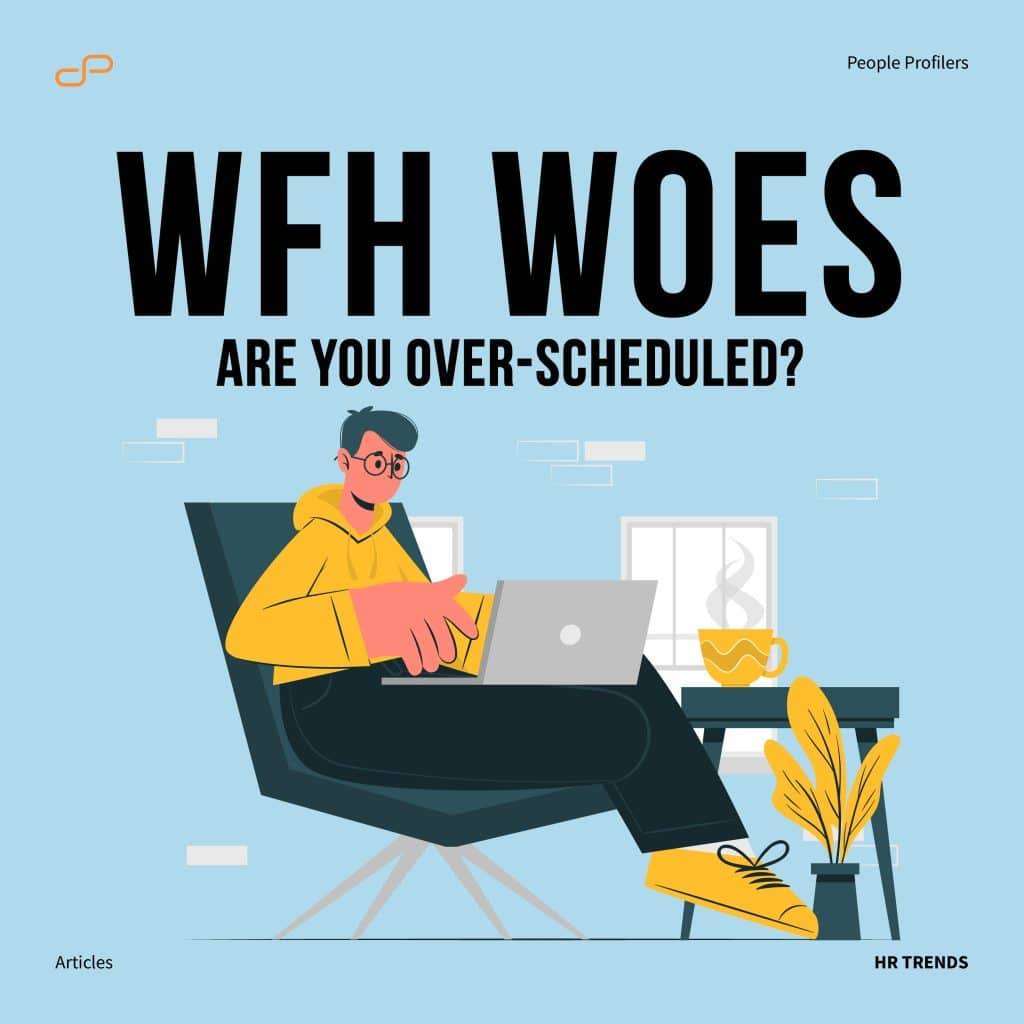
Work From Home Woes: Are You Over-scheduled?
Working from home has many benefits, including less commute time and a more inclusive work environment, but does it promote work-life balance?
Studies on the work-from-home (WFH) culture found that the productivity of those working from home is higher than that of office workers — leading to the widespread implementation of a hybrid work format for the best of both worlds. However, WFH may be different from what it is touted to be. Many who work from home find themselves over-scheduled, attending more online meetings and feeling guilty about taking breaks, including meals.
The fear of being less productive and kept out of the loop spurs many to schedule back-to-back online meetings, often to discuss issues that generally would have been dealt with during informal, in-person encounters with superiors or coworkers during the work day. Working from home also means individuals are required to handle not just their job scope at home but also their household responsibilities of housekeeper, parent and spouse simultaneously. Unsurprisingly, you’d find yourself overwhelmed and exhausted at the end of the day — a far cry from the work-life balance WFM is usually associated with.
Statistics also show that those who work from home stay sedentary for much more extended periods than those who work in offices, which is alarming considering how sedentary office workers already are. Take away the commute time to and from the office, the short intervals in a workday spent walking to and from meeting rooms, and the lunch and coffee breaks with coworkers; that’s an entire workday spent sitting down in one place! What should we do? Give up work-from-home routines and return to the office? No. That would mean abandoning all the perks WFH brings, like cultivating an inclusive work environment, increased team agility and lowered workplace maintenance costs.
Furthermore, the WFH format has the potential to provide better work-life balance to those who practise it properly.
One simple change needs to happen: take breaks.
Schedule time in your WFH day to work out, do the chores and eat your meals uninterrupted by work calls.
A study by the University of Illinois found that allowing your brain to shift gears and take breaks increases productivity. Our brains convert prolonged and constant stimulation of a singular activity from focused awareness into autopilot consciousness, which is unhelpful for much of the mental work we do in the long run. Take work calls with your phone in another room of your house instead of at your desk and on the computer. Get up and make coffee or tea at intervals during the day—just like you would in the office. Or go out for lunch (or dinner) instead of ordering takeaway and breathe fresh air to stimulate your brain and get a new perspective on that work dilemma that’s been on your mind for hours. The key to overscheduling is to unschedule some things. Create gaps in your WFH day and get moving—physically.
A sedentary lifestyle leads to weight gain, increased risk of heart disease and depression, and lowered life expectancy, which can be exacerbated by an overscheduled WFH routine or mitigated with a little more physical activity and some mini mental breaks interspersed throughout your day.
If you are considering a role that’s heavily dependent on the WFH culture but aren’t sure if it’s right for you, simply send us your resume, and we’ll ensure we match you to the right one!


